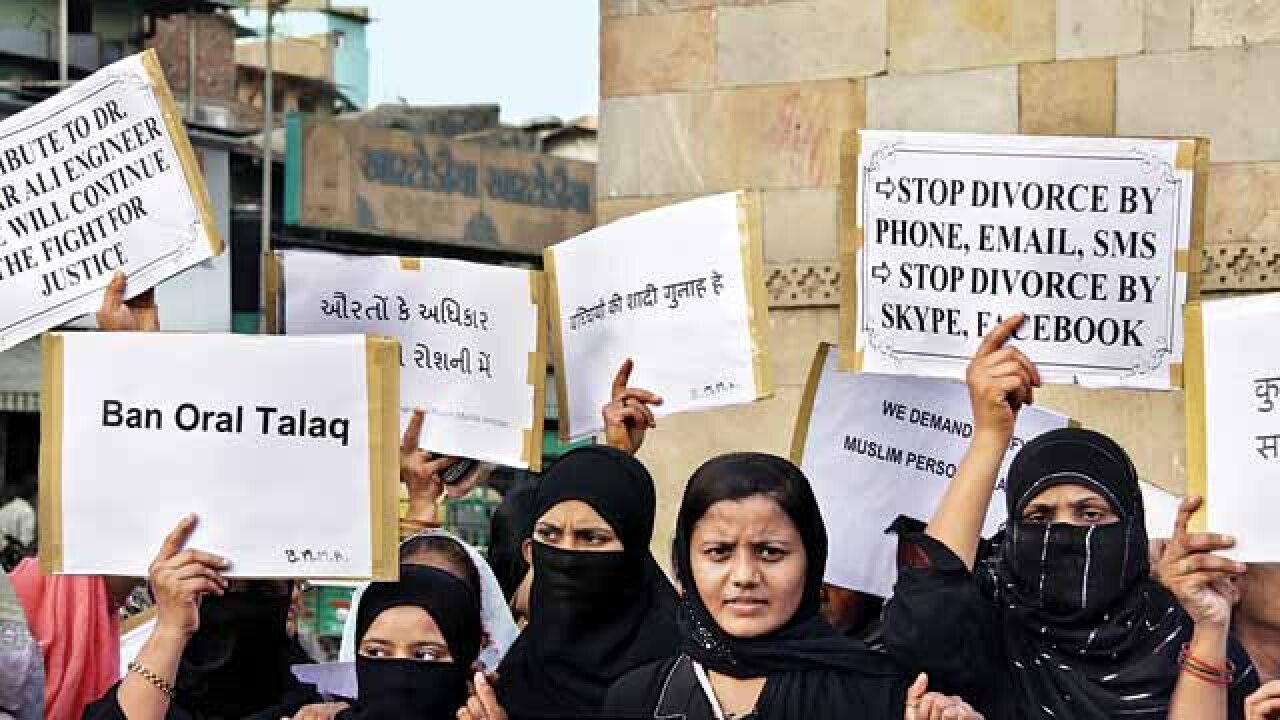
A movement to outlaw triple talaq — the archaic practice of unilateral and oral divorce in the Muslim community — is gathering steam in civil society, and it is incumbent upon the central government and the Supreme Court to take note of these developments. Coincidentally, the Supreme Court is hearing a petition demanding that triple talaq and polygamy be abolished amid loud protestations by the All India Muslim Personal Law Board against judicial intrusion. While Hindu laws were codified by Parliament, the Jawaharlal Nehru government was overtly sensitive to the sentiments of minority community leaders in the aftermath of Partition. In the decades hence, Parliament has been unable to enact a Uniform Civil Code or separate codified laws for other religious communities, though the demand would crop up every now and then. It was also an abdication of the country’s constitutional responsibility to a section of its citizens. What this did was to condemn Muslim women and children to the diktats of local qazis even as the rest of Indian society was able to march ahead in consonance with modern laws and under constitutional protection.
An organisation of Muslim women, the Bharatiya Muslim Mahila Andolan, claims to have collected 50,000 signatures demanding the abolition of the triple talaq. An earlier study by the same group of nearly 4,700 Muslim women, mostly in the lower strata of society, found that 92 per cent wanted triple talaq to go. These women were also in favour of an arbitration process, which is an indictment of the statutory vacuum faced by Muslim women in the event of a triple talaq. The Dissolution of Muslim Marriage Act, 1939, applies to Muslim women who seek divorce from their husbands, but this does not curb the man’s right to divorce his wife orally and unilaterally. Ever since the Shah Bano judgment, the emphasis has been on alimony and securing for divorced Muslim women their right to maintenance and child support. This was perhaps an outcome of the controversial Muslim Women (Protection of Rights on Divorce) Act, 1986 —, enacted by Parliament after the Shah Bano judgment — which restricted the maintenance for divorced women from husbands to only 90 days from the date of talaq. The battles, since then, have been focussed on reclaiming the Shah Bano judgment and arriving at progressive interpretations of the 1986 legislation.
However, Muslim women’s groups are now realising that their weak position did not originate from the 1986 Act, but the hazy rules of marriage in Muslim society and the legal sanction for triple talaq and polygamy, which predated the Shah Bano controversy. Banning triple talaq will not shore up the position of Muslim women until marriages are registered, and grounds for seeking divorce, and procedure for seeking alimony and custody of children are codified. The Bharatiya Janata Party, a votary of the Uniform Civil Code, must take note that abolishing triple talaq can be a milestone on the long road to a Uniform Civil Code. Unlike the Congress, which was worried solely about the electoral backlash from conservative Muslim sections, the BJP has a unique opportunity here to endear itself to progressive sections and women. Ultimately, the very fact that Muslim women are subjected to such patriarchal and unfair practices like triple talaq and polygamy puts a question mark on our commitment to constitutional values. It is time that the rule of law applied equally to all people.